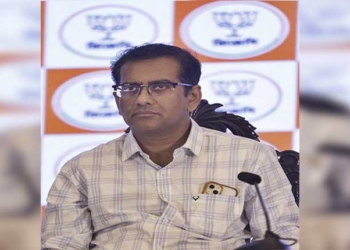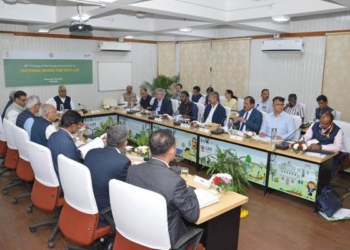New Delhi: The Supreme Court on Friday agreed to examine a plea filed by Jamiat Ulama-e-Maharashtra and others challenging the registration of FIR and ban imposed by the Uttar Pradesh government on storage, distribution and sale of food products with halal certification.
Initially, a bench of Justices B.R. Gavai and Sandeep Mehta was not inclined to entertain the writ petition filed directly before the apex court and questioned the petitioners for not approaching the jurisdictional High Court for seeking relief.
However, on persuasion made by the petitioners that the ban has wide implications on interstate trade and industry, and affects consumers across the country belonging to a particular community, the bench proceeded to issue notice to Uttar Pradesh government and others, returnable in a period of two weeks.
Further, the apex court declined to pass any interim relief in the matter and said that it will be considered at a later stage.
The plea filed through advocate Sugandha Anand, stated that the impugned notification issued by the Uttar Pradesh government violates Article 14, 19(1)(g), 21, 25, 26 and 29 of the Constitution of India and “is arbitrary and based on unreasonable classification”.
In November 2023, the Uttar Pradesh government passed an order banning with immediate effect the production, storage, distribution and sale of food products with a halal tag.
The order said that running a parallel system regarding the quality of food items creates a confusion and is not tenable under Section 89 of the Food Law Food Safety and Standards Act.
“The right to decide the quality of food items lies only with the authorities and institutions given in Section 29 of the said Act, who check the relevant standards as per the provisions of the Act,” it added.
Earlier, the Uttar Pradesh Police registered an FIR against entities such as the Halal India Private Limited Chennai, Jamiat Ulama-i-Hind Halal Trust Delhi, Halal Council of India Mumbai, Jamiat Ulama Maharashtra and others for allegedly exploiting religious sentiments to boost sales by providing halal certificates to customers of a specific religion.
The complainant raised concerns over a large-scale conspiracy, indicating attempts to allegedly decrease the sale of products from companies lacking the halal certificate and alleged that people’s religious sentiments were exploited to boost sales by providing “forged” halal certificates.
(IANS)














